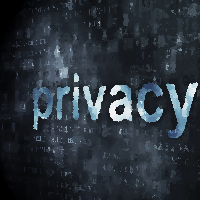How PUPs (potentially unwanted programs) sneak into PCs, How to remove, How to avoid.–PC Pitstop
PUPs on your PCs are Dogs
Bob Rankin
The phrase “potentially unwanted program” (PUP) is popping up more frequently in discussions of security and anti-malware protection. To me, “PUP” means malware; it’s software that I never wanted, didn’t deliberately install, and that makes my life more difficult. The awkward attempt to avoid offending its developers seems ridiculous. Here’s what you need to know about PUPs, how they sneak in, how to remove them, and how to avoid PUPs in the first place…
A PUP By Any Other Name is Still a Dog
The consensus among definitions of “PUPs” is that they sneak into your system; they ride on the coattails of legitimate programs, or pretend to be something they are not, or don’t fully disclose some of the things they’re going to do. Dirty-underhandedness is the hallmark of a PUP. There is no “potential” about its undesirability; I don’t want sneaky software on my machine, period.
Some PUPs are nothing but adware. They track where you go online, report back to headquarters, and clutter your screen with targeted ads. They may also change your browser’s home page, usually to one that’s serving ads but sometimes to rogue sites that secretly download and install more adware on your machine. Some of the worst offenders tamper with ad-blocking and security software settings. Is there anything potentially wanted about PUPs?
PUPS – potentially unwanted software
And yet, what PUPs do is legal in most cases. According to PUP developers, everyone who installed their software did so with full understanding and consent to what it was going to do. If their software invaded your privacy or changed how your computer behaved, it was done with your permission. You checked a box (or left a pre-checked box checked) which clearly confirmed that you had read and understood the company’s license agreement and agreed to it. Obviously, this argument is disingenuous, but it suffices for legal purposes.
PUPs have been around for a long time. In the mid-1990 there were pitched battles between developers of PUPs and antivirus software; the former strenuously objected to being labeled “viruses” or “Trojans” or “malware.” Some PUP developers threatened to sue for libel, tortious interference with business, and other hyperbolically indignant claims. The belligerent stance of PUP developers is most likely to blame for the insipid, vague label, “potentially unwanted program.”




